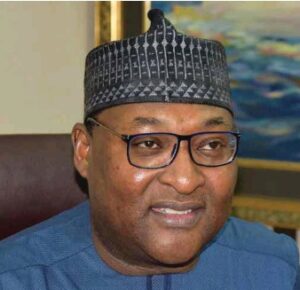One of the justifications for the port concession in 2006 was that the new dispensation would usher-in a new era of fair and competitive pricing for port services to be provided by terminal operators and others.

Not much has been heard about contestations for appropriate pricing or hike in tariff for services provided by the seaports terminal operators, that is, after the first denial of such in 2014.
After the January 2014 denial of intention by the umbrella body of all terminal operators; the Seaport Terminal Operators Association of Nigeria (STOAN), it is not certain whether there had been any official upward review of charges since then. Or perhaps, there have been unofficial hike in some charges different from the ones currently being pushed for by the terminal operators.
That was until mid-May 2021, when two of the terminal operators announced their intentions to announced new tariffs, effective June 1, 2021.
Perhaps testing the waters, Port and Terminal Multiservice Limited (PTML) and Five Star Logistics Terminal; at Tin Can Island Port announced the planned increase.
In a widely circulated notice, the two terminals justified that the increase became imperative owing to the impact of the economy on the company’s direct cost. They also claimed that they had not adjusted their tariffs for a numbers of years. The two controversial charges are: terminal handling cost and terminal delivery cost.
Specifically, both terminals blamed the proposed increase on inflation and the ever-increasing operational expenses, which has had a huge impact on their direct operating costs.
Read Also: Do you think that the terminal operators are justified in their tariff hike?
Surprisingly, reactions to the proposed tariff hike has been more in favour of the terminal operators. First to rise in support was the Maritime Workers Union of Nigeria (MWUN) whose President General Comrade Adewale Adeyanju recently registered the union’s support for the upward review of the charges. He also agreed that the charges have been stagnated for many years.
Understandably, he argued that the none increase in the terminal charges by port concessionaires has affected the welfare of dockworkers finances.
“We believe doing this will boost their financial capacity to enable them fulfil their financial obligations to our members and to government”, he added.
However, against established norms of defending one’s principal, freight forwarders, especially those who operate at the two terminals, have also thrown their weight behind the hike. Their position is clearly at variance with that of importers under the aegis of Shippers Association of Lagos state.
The only group that has so far come out to kick against it is the shippers’ association, whose President; Reverend Jonathan Nicol has given reason for its position.
The position of the nation’s port economic regulator; the Nigerian Shippers’ Council (NSC) on the request by the terminal operators is quite understandable.
While weighing in on the demand, its Executive Secretary; Mr Hassan Bello said that the Council was not against the increment in terminal tariff, but insisted that the tariff must be justified with the consent of the council as the lead agency in the port.
Bello acknowledged that, although there may be need for review of charges, the review of must be done through consultation with the port economic regulator.
We note that, the terminal operators have acquiesced to the directive of the NSC that they should not yet jack up the controversial charges.
While acknowledging the obedience on the part of the terminal operators, we are also of the opinion that, there should be negotiations to agree on the percentage of increase.
While the 50 percent being proposed by the terminal operators is unacceptable, we are also aware that the terminal operators have tinkered with some charges before now. They can not sit in a meeting with the shippers and freight forwarders and win a battle for tariff hike.
Having said that, we are also in support of a marginal and negotiated tariff hike. Our position is based on the challenges that abound on the access roads to the two ports in Lagos. The poor state of the roads has hugely hampered cargo evacuation from the terminals, hence limiting the cargo handling strength of the various terminals. If the roads leading to Lagos ports are motorable, we are certain that the demand by the terminal operators may have been contestable, but in the circumstances, they really do have a point.
Mr John Jenkins, Managing Director of Ports and Cargo Handling Services Ltd. Captured the situation aptly when he said that the challenge of the port access roads had resulted in congestion inside the port terminal, as the efforts to speedily evacuate cargoes were hampered by poor access roads. “Our workers are expecting an increase in salaries. The cost of fuel and other necessary costs have also increased,” Jenkins said.
Secondly, we are aware of the hyperinflation in the country and the ridiculous exchange rate of Naira to other currencies. This is more damaging on the operations of the terminals, which is dependent on equipment and crafts that are imported.
In conclusion, we call for an immediate convocation of a tripartite meeting between members of Seaports Terminal Operators Association of Nigeria, representatives of shippers in cargo clearing, that is freight forwarders and the economic regulators of the ports, that is the Nigerian Shippers’ Council to critically and objectively assess the various parameters and positions.
In carrying out this task, the Shippers Council must also not lose sight of the impact of what Nigeria loses annually to illegal charges imposed on importers by multinational shipping companies and terminal operators.
Our position is that, illegal charges are akin to importing inflation into the nation’s economy, be it, by the shipping companies or terminal operators.
















Discussion about this post